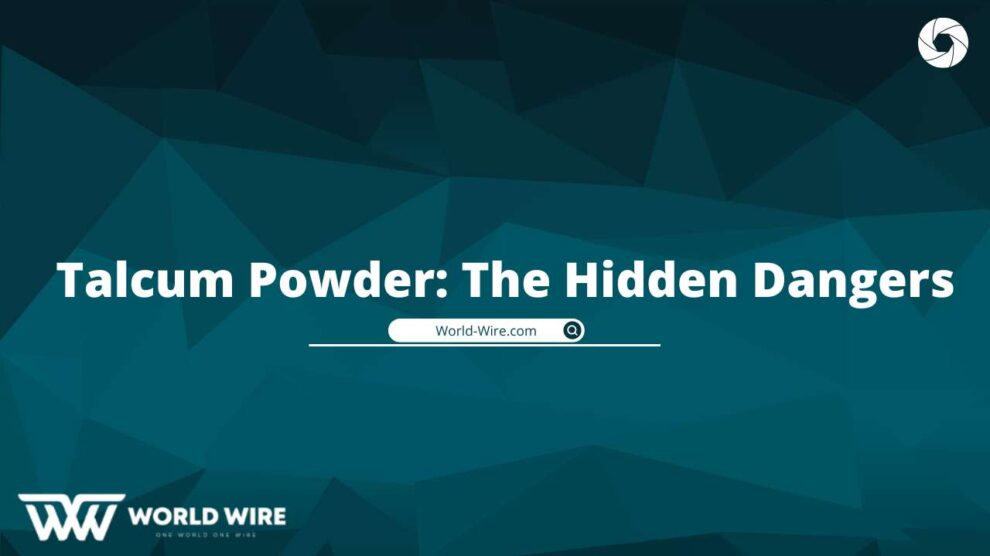There’s a soft mineral compound called magnesium silicate, which is processed into talcum powder. It’s probably used on you at some point in your life. It’s manufactured by Johnson & Johnson, among others, and is widely available at drug stores. Years of advertisements have convinced women to dust themselves with talcum powder to cover their genital odors.
For over 50 years, talcum powder has symbolized freshness and cleanliness, but it’s a dangerous, but avoidable, cause of ovarian cancer, says Cancer Prevention Coalition chairman Dr. Samuel S. Epstein.
Dr. G.Y. Hildick-Smith, then Johnson & Johnson’s medical director, contested a 1971 report that found talc particles in ovarian cancers.
“Talc’s potential harmful effects on the ovary… shouldn’t be ignored,” said a follow-up publication in the prestigious medical journal The Lancet. An article in Obstetrics & Gynecology in 1992 confirmed this warning by showing that women who used talc on their genitals threefold increased their risk of getting ovarian cancer. It’s just regular “baby powder” or brand name talc.
Following the 1992 report, leading medical journals like Cancer, The Lancet, and Oncology published more than a dozen major scientific articles showing talc causes ovarian cancer. A meta-analysis, or a large scale review, of 16 previously published studies involving 11,933 women, was published in 2003 by Anticancer Research as the culmination of this talc research. Dr. Epstein says there’s a 33 percent increase in ovarian cancer risk.
Dr. Epstein says that it’s not surprising that the number of women who die from ovarian cancer has gone up sharply, especially for black women, who use talc more often than others. There are around 16,000 women dying each year from ovarian cancer, which is the fourth most common cancer among women. One in five women applies talc to her genitals on a regular basis. Dr. Epstein says women use talc either directly or through products like tampons, sanitary pads, and diaphragms that are dusted with it.
As the cosmetics industry admitted in 2002, talc is toxic and has the potential to reach the ovaries, even the president of the industry’s Cosmetic Toiletry and Fragrance Association acknowledged that.
Yet, Dr. Epstein says, “surprisingly, talc manufacturers didn’t warn women that their products could be dangerous to their health.”
Talc has never gotten even casual attention from the Food and Drug Administration (FDA). “We’re aware that there have been reports in the medical literature linking frequent female perineal talc dusting over a protracted period of years to the statistical odds of later developing ovarian cancer,” the acting associate commissioner for legislative affairs of the Department of Health and Human Services admitted in 1993.
Dr. Epstein says he was surprised when this official said the FDA was not considering banning, restricting or requiring talc-containing products to include a warning statement on their labels. With the awareness that talc is extremely hazardous and the continued inaction of the government, the Cancer Prevention Coalition in 1994, with support from the New York Center for Constitutional Rights, submitted a Citizen’s Petition to the FDA.
There was a petition requesting that talc genital dusting powder be labeled with an explicit warning against ovarian cancer risk. According to Dr. Epstein, the FDA denied the petition. The Cancer Prevention Coalition submitted another Citizen’s Petition to the FDA in May 2008. Organic Consumers Association, International Association for Humanitarian Medicine, and National Congress of Black Women all endorsed this one.
“According to new scientific evidence, talc is dangerous, and we asked the FDA to require that talc products be labeled like this: “Frequently applying talcum powder to the female genital area increases the risk of ovarian cancer,” Dr. Epstein points out.
A petition submitted to Andrew von Eschenbach, M.D., then Commissioner of the FDA, did not receive a response.
In order to protect unsuspecting women from the extreme dangers of talc, Margaret Hamburg, M.D., the recently appointed FDA Commissioner, has taken prompt regulatory action.
M.D. Samuel Epstein is the former chair of the University of Illinois at Chicago School of Public Health Department of Environmental and Occupational Medicine, Chairman of the Cancer Prevention Coalition, winner of the Albert Schweitzer Golden Grand Medal for International Contributions to Cancer Prevention, and author of over 200 scientific articles and 15 books on cancer causes and prevention, including the groundbreaking The Politics of Cancer (1979) and Toxic Beauty (2009).







Add Comment